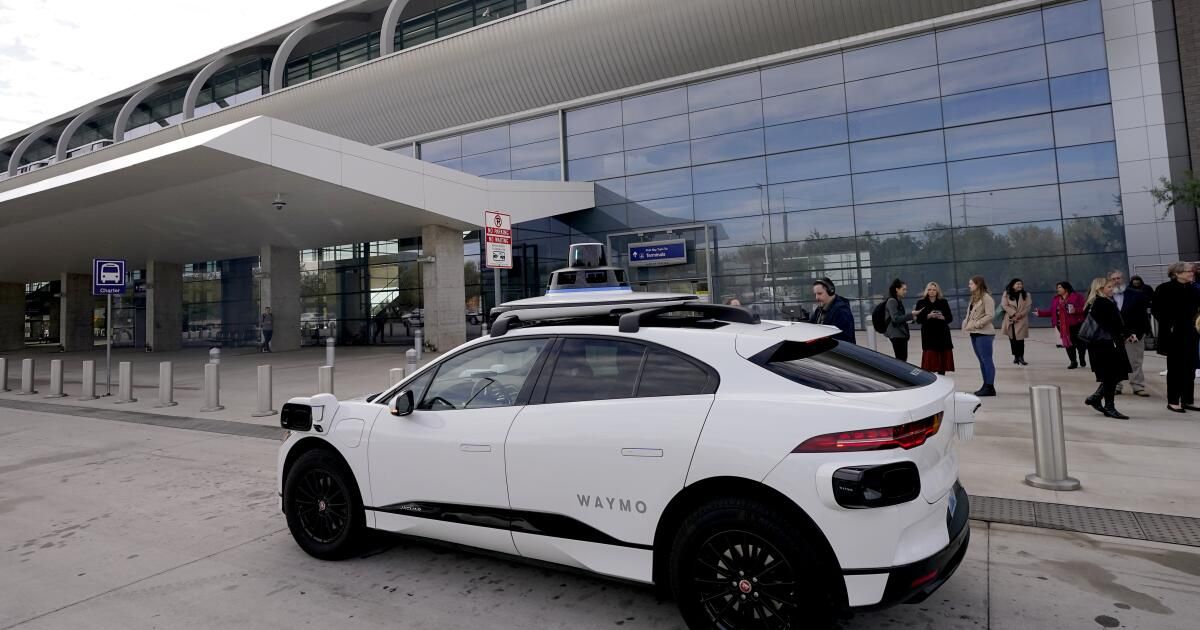On Friday, state regulators gave Waymo the green light to expand into Los Angeles and San Mateo counties, paving the way for the driverless taxi service to launch in the coming months.
Exactly when Waymo services will be available in Los Angeles remains to be determined, but the California Public Utilities Commission's decision will open the streets of America's second-largest city to a fleet of autonomous vehicles, even as self-driving cars driver continue to be the subject of safety concerns and some public criticism.
Waymo, formerly known as Google's self-driving vehicle project, is owned by Google's parent company, Alphabet, and already operates in parts of San Francisco.
The company is allowed to operate fully autonomous vehicles and transport public passengers as part of its testing and promotion, and has been testing its driverless white Jaguars in Los Angeles for more than a year. An invitation-only period was implemented in Los Angeles County last year, giving some the opportunity to experience the service firsthand.
“As always, we will take a careful and incremental approach to expansion by continuing to work closely with city officials, local communities and our partners to ensure we offer a service that is safe, accessible and valuable to our users,” said the Waymo spokesperson. Yulia Ilina said in a statement.
But Waymo's expansion has been met with some skepticism, and vehicles have sometimes been vandalized. Last month, a mob burned an empty Waymo car in San Francisco's Chinatown, although the motive for the attack was unclear.
Los Angeles officials have expressed concern about the deployment of driverless vehicles, and some have backed legislation introduced by state Sen. Dave Cortese (D-San Jose) that would give local officials more power to regulate them.
Currently, local jurisdictions have no say in the commercial deployment of autonomous vehicles. The CPUC authorized the expansion of Waymo operations despite letters of opposition from officials in the southern counties of San Francisco, San Mateo and Los Angeles, and multiple transportation agencies.
In a protest letter to the commission, the Los Angeles Department of Transportation argued that there needs to be standardization of removal protocols and greater oversight of automated vehicles before their deployment.
“Any expansion by Waymo will set a precedent for these companies and those seeking to enter the market to be implemented without rules or safeguards in place that were enacted without meaningful coordination with local jurisdictions,” the letter said.
Los Angeles Mayor Karen Bass asked regulators in November to increase scrutiny of autonomous vehicles and said the city should have a say in how they are regulated.
At that time, he pointed out one of Waymo's self-driving cars operating in Los Angeles that had initially failed to stop for a traffic officer at Beaudry Avenue and Wilshire Boulevard on August 3, 2023. The officer had been flagging traffic in an east and west direction. to stop.
Groups that submitted letters of support for Waymo's expansion included United Way Bay Area, the California Chamber of Commerce, the Epilepsy Foundation of Northern California and Independent Living Resource Services of Southern California, among others.
Before the commission's approval, San Mateo County Attorney John D. Nibbelin protested, saying the county did not have enough information about the expansion plans or enough commitment to Waymo.
“The 'quick and streamline' advisory letter review process… is insufficient to develop the evidence necessary to fully understand the potential impacts and issues that Waymo's expansion into San Mateo County will create, including accounting for different needs and obstacles that Waymo will face when operating. in San Mateo County,” Nibbelin’s letter to the commission said.










